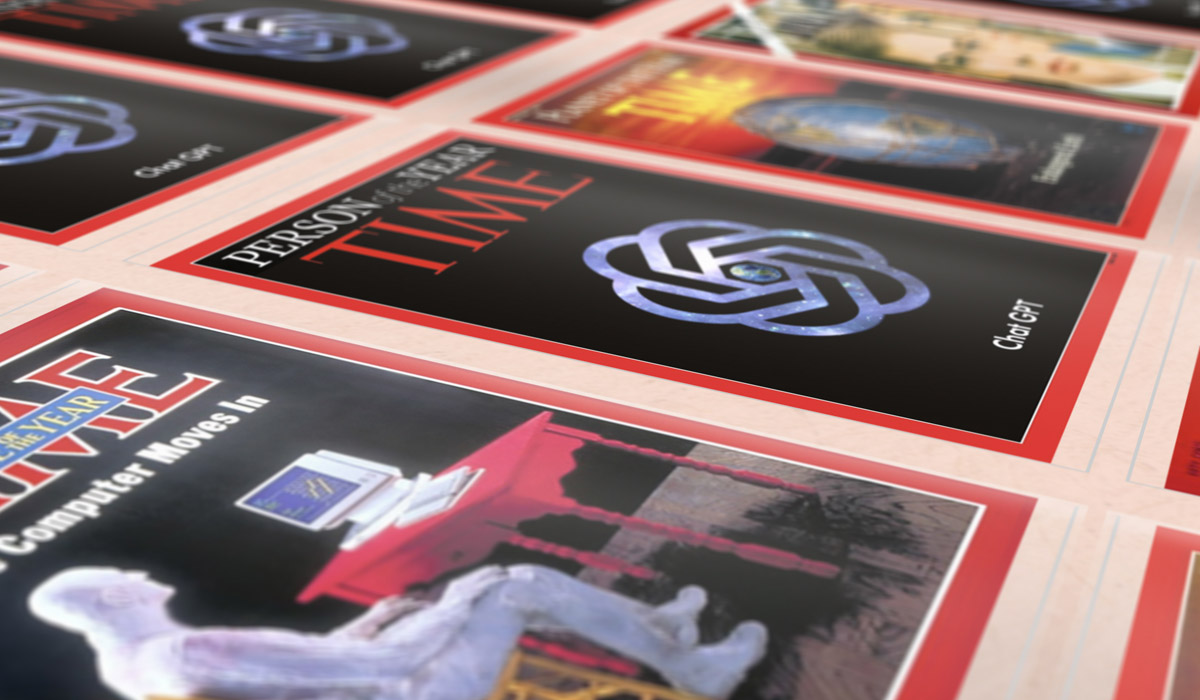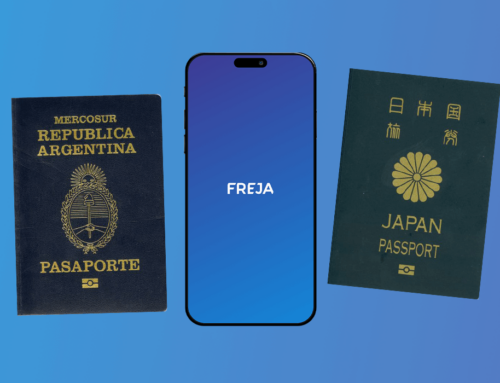Part 1
In a few months, Time Magazine will select its Person of the Year, for the 96th time. What are the chances of Chat GPT winning? What qualifies and disqualifies it for this title, and who are its competitors?
The most obvious argument against Chat GPT is that it is not a person, and cynics would say that it is just a slightly more sophisticated autocomplete tool or dictionary. However, GPT could personally and quite convincingly explain why it deserves this title, for example, in the style of Edgar Allan Poe’s poetry, which it could generate in a matter of seconds.
Its words of wisdom and infinite knowledge,
Makes it stand out from the crowd of college,
It understands and responds with ease,
A technological marvel, a masterpiece.
However, even if we put macabre poetry aside, no autocomplete can write instructions on how to remove ketchup from a cheeseburger – in the style of the American Declaration of Independence, or persuade you to join a religious cult, or buy crypto – although I already mentioned joining a cult. Dictionaries have been dozing on bookshelves for centuries, and not a single one has ever whispered to people so convincingly to get divorced or married.
The consequences were expected – competing companies, lawmakers, and the entire human community declared Cod red. And we know why: Even one case where someone falls in love with a ghost from a machine is too much, and that already happened, when Joaquin Phoenix, in the movie Her, fell in love with an AI avatar from his computer.
Understandably, no one wanted the situation to repeat itself, either in a movie or in reality.
Microwaves have seen hundreds of people trying to charge their iPhones in them, or dry their pets, or disinfect banknotes from the coronavirus, and probably don’t want emotional attachments with any member of the mankind.
That’s why Chat GPT creators have emphasized countless times, that there is nothing personal about GPT, in the sense in which personality is defined by the Merriam Webster dictionary under item 5: the personality of a human being: SELF. But, a rough look at the list of previous laureates shows that there are many “persons” who could not be represented by a photo from a personal ID card, a presidential portrait, or an oil painting, or a definition from the Webster dictionary.
Let’s start with the most significant for our argument. The winner in 1982 was the personal computer, with 64 KB of memory, a 6 or 8 MHz processor, a black and white display, and a 160 KB disk drive. Putting aside artificial intelligence, and even a printer that can flirt by winking with a green and red LED light in the dark, compared to the 1982 PC, even today’s washing machine, technically speaking, has a personality, figure, and charm that could convince you to spend a weekend on the Mediterranean, in its embrace.
In the category of winners that defy the standard definition of personality, we would also include American soldiers, laureates for 1950, then 1966 – the Baby boom generation, 1968 – the Apollo 8 astronauts, the first human-crewed spacecraft to orbit the moon, in a mission that was a decisive step in the later landing of Apollo 11 moon landing , a year later.
Instead, the winner of that year was the ‘Silent Majority’ – the conservative population of small towns and suburbs in the American Midwest, who did not earn the adjective “silent” because they knew how to behave in the cinema but because their beliefs were no longer decent to speak aloud.
Certainly, the astronauts have one consolation. Without their flight to the moon, it would have been impossible for nearly half a century, for grown-up man, to keep proving that the moon landing never happened, but was only a global conspiracy, in which, for incomprehensible reasons, America, Russia, China, and Stanley Kubrick, who directed the whole show at Disney Studios, joined forces.
Because it was clear that if Apollo flew to the moon, it would see that the Earth is actually flat.
Speaking of which – Time’s Person of the Year 1988 was Planet Earth. Or as Time editors called it, The Endangered Earth. Although we flatter ourselves by calling it Mother Earth, and pretend we understood the metaphor that the Earth is a person, and that we should treat it as such – we are not serious. Otherwise, we would not have invented crocs, worn them with socks, and in meantime, left 5.25 trillion macro and micro pieces of plastic in the ocean.
If the Earth were a real personality, would it resent us? Would we be its favorite species if it compared us to oysters and dinosaurs? Would it perhaps prefer artificial intelligence to succeed us on it?
Would she prefer Chat GPT as the Time magazine’s Person of the Year?
We have seen what this technology looks like in competition with personalities, which, in fact, by definition, they are not. And what are the chances of ChatGPT in competition with real people who have won Time magazine’s Person of the Year title in the past? We will find out in the next installment in a few days.







